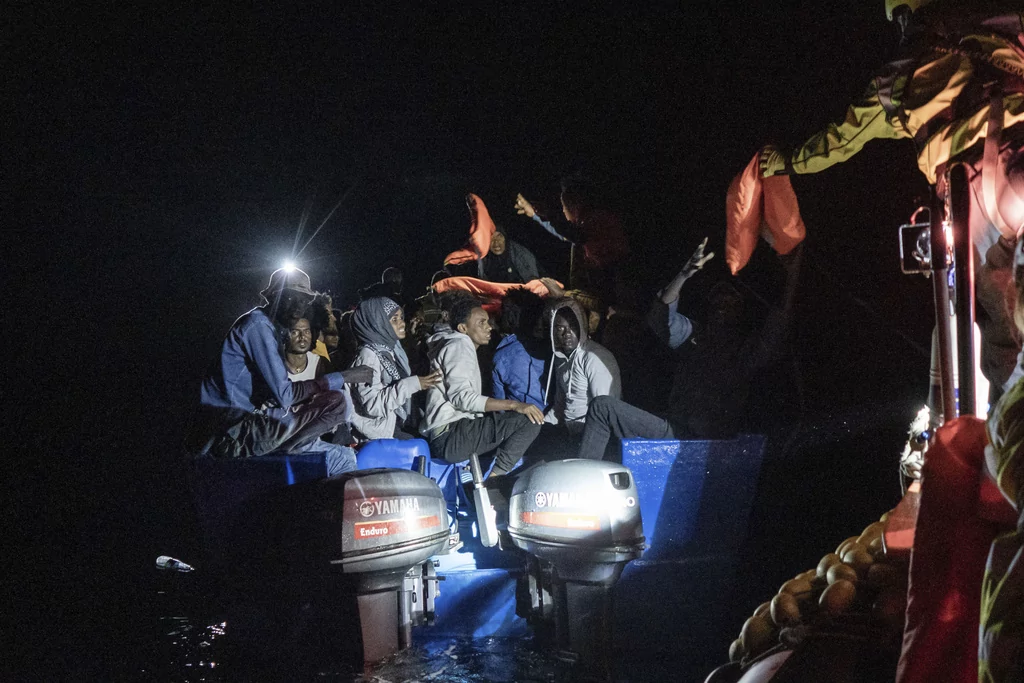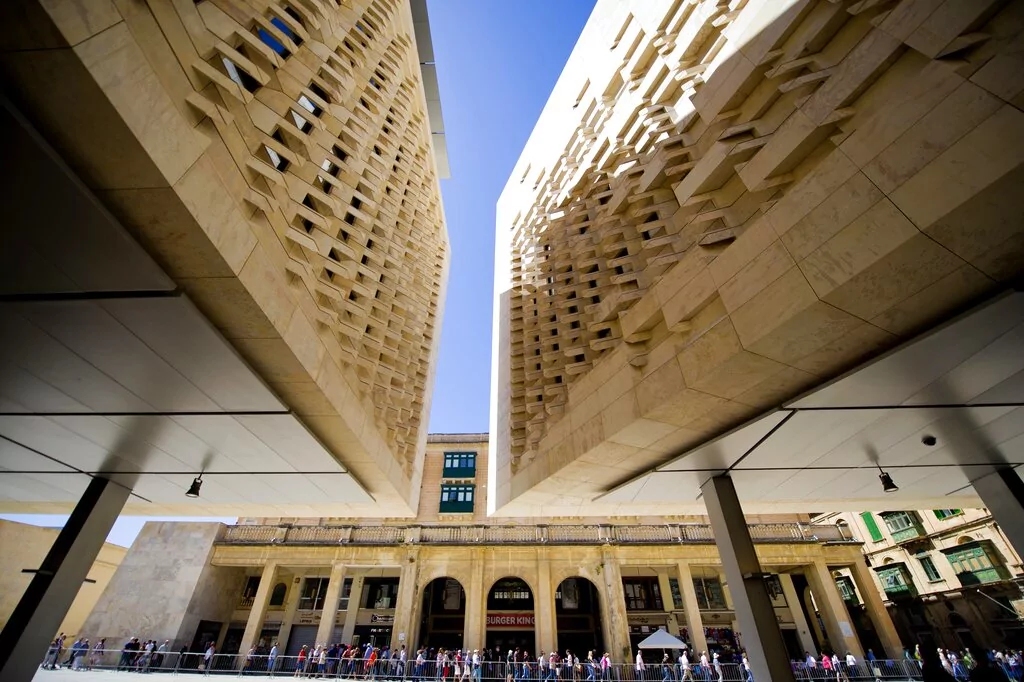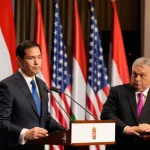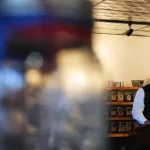
EXCLUSIVE — Maltese Prime Minister Robert Abela boasted last month at the EU Council summit in Brussels that his nation “no longer stands alone” against rampant illegal migration into Europe.
The small island nation has for years been leading the charge against the illegal trafficking of African nationals through the Mediterranean, citing the burden it has placed on its limited infrastructure and the difficulty of returning illegitimate asylum-seekers.
When the European Union failed to offer meaningful guidance, Malta decided to forget the continent and implement its own return policies. Now nations with similar migrant concerns are seeing the success and starting to follow its lead.
It’s a sharp contrast to the United States, the superpower of the world, where politicians have failed for decades to address internal and international exploitations of border policy that have led to over 10 million illegal immigrants residing within its borders.
The Washington Examiner sat down with Maltese Speaker of the House Angelo Farrugia and Maltese Ambassador to the U.S. Godfrey Xuereb for a conversation about how a tiny state manages to keep itself from being bulldozed by larger countries in international policy.

“We have to address the problem our own way,” said Farrugia. “We have nearly zero assistance from other European countries. There is no coherent immigration policy, so we had to address it ourselves.”
Malta sits in the middle of the Mediterranean Sea between the southern tip of Italy and the northern coasts of Africa.
Every year, thousands of illegal migrants attempt to enter Malta from Tunisia, Libya, and elsewhere by sea.
Sometimes, these expeditions are undertaken by private groups of Africans making an attempt on their own. Other times, they are organized by human traffickers promising to get paying customers over international waters into Europe.
These ill-fated smuggling attempts frequently end with a distress call to nearby coast guards, demanding rescue and asylum. Due to its geographic placement, Malta is often the one who has to answer the call.
Many of these migrants arrive without passports or credentials affirming their country of origin. Attempts to contact their home countries to confirm their nationality and send them back are bogged down by international bureaucracy and a lack of enthusiasm for their return.
The simple solution that Malta has employed is to tighten its qualifications for refugee status while broadening the hearings and appeals processes to ensure each case is examined rigidly and thoroughly.
“If he asks for asylum for reasons that are clearly defined in [The 1951 Refugee Convention] — which is applied to any country — that is OK,” said Farrugia. “But those immigrants that just cross the border in [the U.S.’s] case, in our case cross the Mediterranean, because they want to leave the country they were from … to work, they have no right to enter the country.”
Malta is a tiny nation by any metric. The entire country is approximately 122 square miles, about the size of Philadelphia. It has a population just over 550,000 people — about equal with the city of Albuquerque, New Mexico.
For a country this small, what seems like trivial amounts of illegal entries can be catastrophic.
Maltese authorities have cracked down on illegal migrants inhabiting the country illegally, conducting raids on private residences believed to be housing those escaping the law.
Farrugia believes the policies are already working, claiming that “human traffickers in North Africa, mainly in Libya, are changing their routes.”
Some aspects of the crackdown have ruffled feathers in pro-immigration circles of European Union technocrats, but supporters say there was no choice but to implement their own policies when Brussels failed to address the growing concern of border nations.
“We still hope there will be a common policy among all the European countries on how to address the question of immigration,” Farrugia told the Washington Examiner. “The fact we are down there — whoever crosses from North Africa comes to Malta or some island in the Mediterranean, it doesn’t mean that it is our problem. It is a problem of all of Europe.”
“I was recently in Cyprus, and they had the same problem. And they always waited for the European Union that they would help them on the problem of illegal immigration,” he continued. “Especially what’s happening now because … a lot of Lebanese and Palestinians are fleeing the area and the first country they have in front of them is Cyprus. And they now have thousands of illegal immigrants.”
“I’m not saying you should not allow a person when he is in humanitarian crisis — but the fact that he came to your country because you are the first to receive him, it is not your problem. It is the problem of the whole community.”
Additionally, reforms to the handling of illegal migrants has forced a greater efficiency in legal migrant arrangements, benefitting both foreign workers and Maltese nationals.
“We have a legal system for giving visas, giving work visas,” said Xuereb. “They are working officially, paying taxes.”

“In fact now, the population of Malta in the last 10 years increased by 25% and they are all foreigners, mainly from third world countries — especially from Africa, Asia, India, Nepal, Pakistan, Sri Lanka, Bangladesh,” said Farrugia. “Paying social security because they are law abiding and they are working. The country needs them because there are several economic niche … because we don’t have enough labor force from the locals.”
For the Maltese, the difference between a legal, tax-paying migrant and an illegal migrant draining social programs is immense for the sustainability of its all-encompassing social programs.
“The welfare state is entrenched. It’s not entrenched in the constitution, but it’s entrenched. Both political parties say ‘Yes, we should have a welfare society. Yes, we always have to have free healthcare. Yes, we always have to have free education,’” Xuereb said. “Education and healthcare should not be determined whether you’re the son of a millionaire or the son of a bus driver.”
Instead of foreign nationals entering the islands illegally for economic opportunity without knowledge of Maltese culture, the government is focused on collecting members of the diaspora who fled the island during waves of emigration in the 19th and 20th centuries.
Members of the Maltese diaspora — or, as the government calls them, “returned migrants” — are offered dual citizenship and full rights in the homeland.
The main expectation is a personal investment in the future of Malta — because the island can only survive for as long as its citizens remain vigilant and active fighting for their future.
CLICK HERE TO READ MORE FROM THE WASHINGTON EXAMINER
Just under 90% of their population vote in general elections — one of the highest rates of participation in the world without the necessity of compulsory voting laws.
“Politics in Malta is like a religion,” Farrugia told the Washington Examiner. “They say their prayers in the morning, they make the sign of the cross, and then they start talking politics.”






